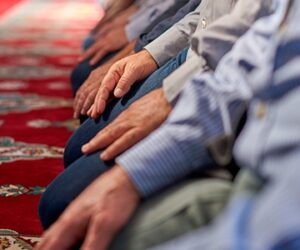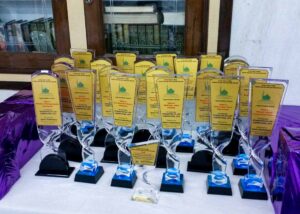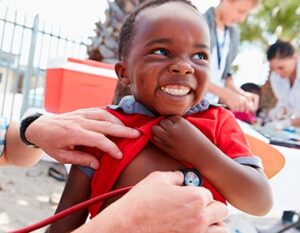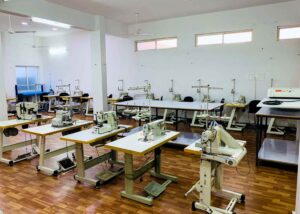The unique feature of Masjid e Ibadur Rahman is having its own publication house.

As seeking knowledge is prescribed in Islam throughout one’s life, and life ends only at death, it is essential for the seeker of knowledge to combine meeting worldly needs with the pursuit of knowledge. Islam is the religion of knowledge. The first ayah of the Qur’an to be revealed enjoined reading which the key to knowledge is. Islam is the religion of knowledge. The first ayah of the Qur’an to be revealed enjoined reading, mentioned in Surah Alaq 96: Ayath 1 Therefore Masjid E IbadurRahman focuses on Printing books and brochures on various subjects of Islam beneficial for all. Alhamdulillah!
The Various publications of Masjid e Ibad ur Rahman are as follows:
- Book of Azkar (Supplications)
- Book of Hajj and Umrah
- Hisnul Muslims etc
The Various publications of Masjid e Ibadur Rahman along with BEAM Publications are as follows:
- Tawheed
- Kids Camp Syllabus
- Etiquettes of Life
- Seerah of Prophet Muhammad(ﷺ)
- Janaza Brouchers
- Deeniyat Syllabus for Schools at www, beneficialeducation.com etc
Islam consists of 5 Pillars. And Salah (referred to as Namaz) is the second of the 5 Pillars of Islam.

Salah is a compulsory act, must be performed five times a day. Salah is intended to focus the mind on Allah, and is seen as a personal communication with Him that expresses gratitude and worship. Salah is a compulsory act. Salah is among the greatest foundations of Islam, the highest among the actions of Eeman, the shortest way to Allah.
The prayers are recited in the Arabic language, and consist of ayah from the Qur’an. It is the sought after shelter of the repentant, the safe place for the frightened, the best asset of the hard-working and tranquility for the worshippers’ hearts.
Salah starts with Takbeer (saying Allaahu Akbar Meaning: Allaah is the Greater), and ending with Tasleem (saying: as-salaamu ‘alaykum waRahmatul-lahi wabarakatuh Meaning: May Allah’s Peace, Mercy, and Blessings be upon you).
Prophet (ﷺ) said: “The five daily prayers and the Friday prayer until the Friday prayer are expiation (forgiveness of sins) for what is between them.” SAHIH MUSLIM 448
Islamic Summer Camp for children is conducted every year during summer holidays for a period of one month.

Masjid E Ibadur Rahman opens its door for children to learn Islam under the guidance of professional faculties, Aalims, Hafiz etc. A special syllabus book by the name KIDS CAMP is designed for this course in association with BEAM Publications.
The summer course is categorized for age group based on different classes. Section I will consist of children of Class I to V and Section II will consist of children of Class VI to X and more. Every day 3 hours class each of 45 minutes duration is conducted with a short snack break of 10 minutes. The simultaneously same course is being conducted for girls above 10 years in the women’s section of the masjid.
Various Islamic topics are being covered during the course which includes Hifz of 30th Surah of Quran, Supplications, Aqeedah, Seerah of Prophets, Etiquettes of life etc. The main focus is given on understanding Deen in the right perspective under the guidance of professional faculties. The end of the course is associated with MCQ Exam and followed by results, certificates and gifts to the children on the last day.
Big Library for Islamic Reference purpose where one can find the ample of authentic literature to be benefited and extract the references.

Islam provides a great impetus for the human pursuit of knowledge. The first verse that descended on the Prophet Muhammad (PBUH) Was Iqra, meaning “read,” opening the door to read, write, and ponder. The Quran urges mankind to think, ponder, reflect and acquire knowledge that would bring them closer to God and his creation. The Quran uses repetition to embed certain key concepts in the consciousness of its listeners. Allah (God) and Rab (the Sustainer) are repeated 2,800 and 950 times, respectively, in the sacred text; Ilm (knowledge) comes third with 750 mentions.
The prophet Muhammad (PBUH) commanded knowledge upon all Muslims, and urged them to seek knowledge as far they could reach, and also to seek it at all times. Ali ibn Abu Talib, 4th Caliph (may Allah be pleased with him), once said, “I would be slave of a person who teaches me a letter” accentuating the importance of knowledge. Following these commands and traditions, Muslim rulers insisted that every Muslim acquire learning and they gave considerable support to the institution and learning in general. This contributed to making elementary education almost universal amongst Muslims.
Free Medical Camps and Hijama Camps. With poverty and poor health is inextricably linked, those who need healthcare the most are also least likely to be receiving it.

Medicines, healthcare & treatment are often very expensive & thus out of reach of poor innocent people living in poverty, who then, helplessly give up on recovering & seeking medical aid. With poverty and poor health is inextricably linked, those who need healthcare the most are also least likely to be receiving it.
We are trying hard to address this societal injustice In Shaa Allah. This can be achieved with the help of you all, our beloved & caring supporters.
It was narrated that Abu Hurayrah (may Allah be pleased with him) said: The Messenger of Allah (blessings and peace of Allah be upon him) said: “Whoever removes a worldly hardship from a believer, Allaah will remove one of the hardships of the Day of Resurrection from him. Whoever grants respite to (a debtor) who is in difficulty, Allaah will grant him relief in this world and in the Hereafter. Whoever conceals (the fault of) a Muslim in this world, Allaah will conceal him (his faults) in this world and in the Hereafter. Allaah will help a person so long as he is helping his brother.”
[Narrated by Muslim (2699)]
Sister’s Wing comes a separate Section for Ladies with the Tailoring centre and Deeniyat classes


Masjid E Ibad ur Rahman has a separate worshipping section for women. As we know Masjid is a place of worship in Islam for both Muslim men and women. Islam does not differentiate Muslim men and women in terms of worship, 5 times Salah a day is compulsory for both of them, similarly fasting in the month of Ramadan is compulsory for both men and women etc. Even Hajj is compulsory for men and women if they have the means to do it.
Entering Masjid e Haram or Masjid e Nabawi and offering worship is allowed even for women, Similarly, It is permissible for a Muslim woman to pray in any other mosque of the world as per the ahadees and her husband does not have the right to stop her if she asks him for permission to do that, so long as she is properly covered and no part of her body is showing that it is forbidden for “strangers” (non-mahram) to see.
It was narrated that Ibn ‘Umar(R) said: I heard the Messenger of Allah (ﷺ) say: “When your womenfolk ask you for permission to go to the mosque, give them permission.” According to another version, “Do not forbid women their share of the mosques if they ask you for permission.” Sahih al-Bukhari 873 Bilal said: By Allah, we would certainly prevent them. ‘Abdullah said: I say that the Messenger of Allah (ﷺ) said it and you say: We would certainly prevent them! Sahih Muslim 442 The above hadees didn’t say that women are only permitted in Prophet’s (ﷺ) and Sahaba Ikram (R) time but not after that, provided some conditions must be met like she can’t wear perfume, should be covered completely, a separate door for women in masjid etc.


